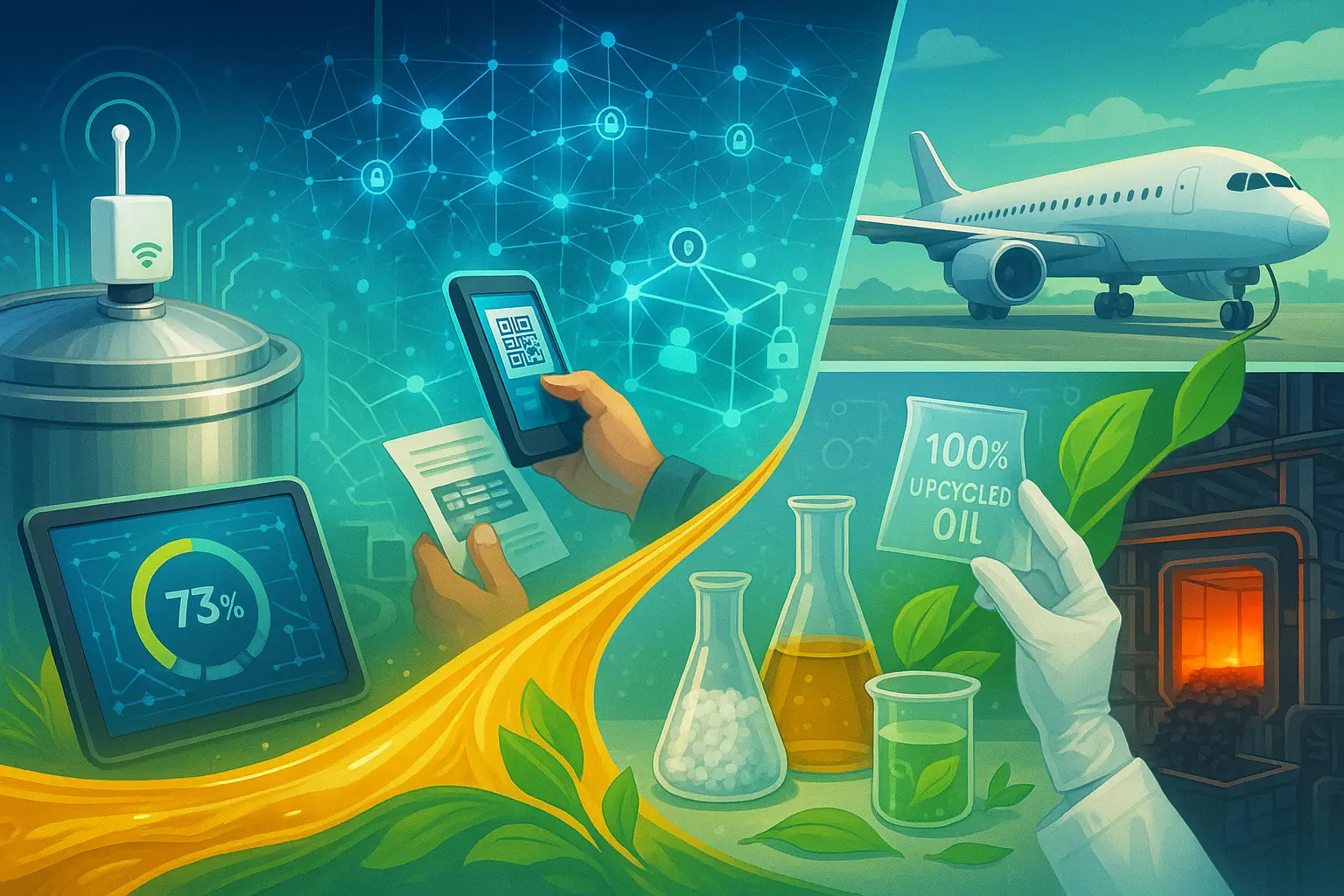Table of Contents
Introduction: From Grease to Green Gold
Used cooking oil (UCO) once left kitchens as an unavoidable cost. Today, data driven collection, chemical wizardry, and Net Zero mandates are converging to turn fryer runoff into a coveted circular commodity. In the next decade, analysts expect global UCO demand to outpace supply as airlines, chemical firms, and carbon markets compete for waste lipids. For forward thinking kitchens, understanding the tech shaping that demand is now as important as food cost math. Below, we explore five innovations already shifting margins and emissions in the Southeast and beyond.
Smart Collection: IoT Bins & AI Routing
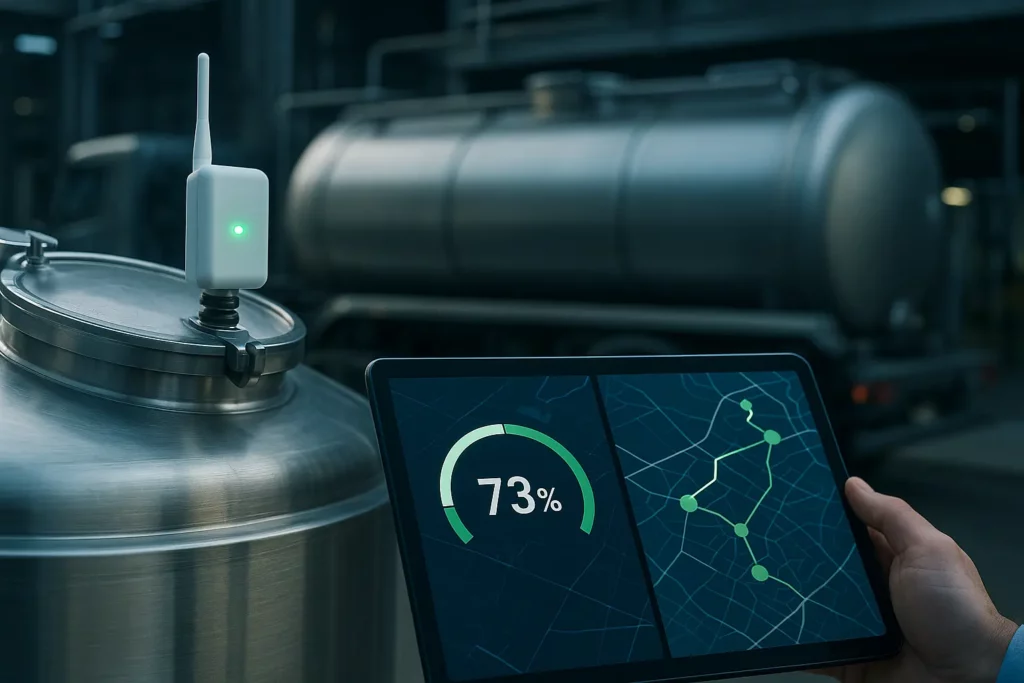
Fill level sensors the size of a matchbox now ping temperature, volume, and tamper alerts from outside tanks straight to hauler dashboards. Systems like Sensoneo‘s radar modules and Portugal’s SWAN network slash theft, eliminate spill risk, and algorithmically redraw pickup routes, cutting miles driven by up to 30 percent. For operators, that means smaller service windows, real time compliance logs, and fewer fry station headaches; proof that the recycling revolution starts with a quiet radio signal under the lid.
Blockchain Transparency: Grease on the Ledger
Black market blending once plagued biofuel refineries, but immutable ledgers are closing the loopholes. Pilot projects across Europe log every gallon’s chain of custody, from restaurant handoff to processor, creating an auditable path that regulators and buyers can verify in seconds. The result: higher rebate prices for documented oil, faster fraud investigations, and new ESG credits that flow back to local kitchens. When provenance becomes profit, clean data is as valuable as clean tanks.
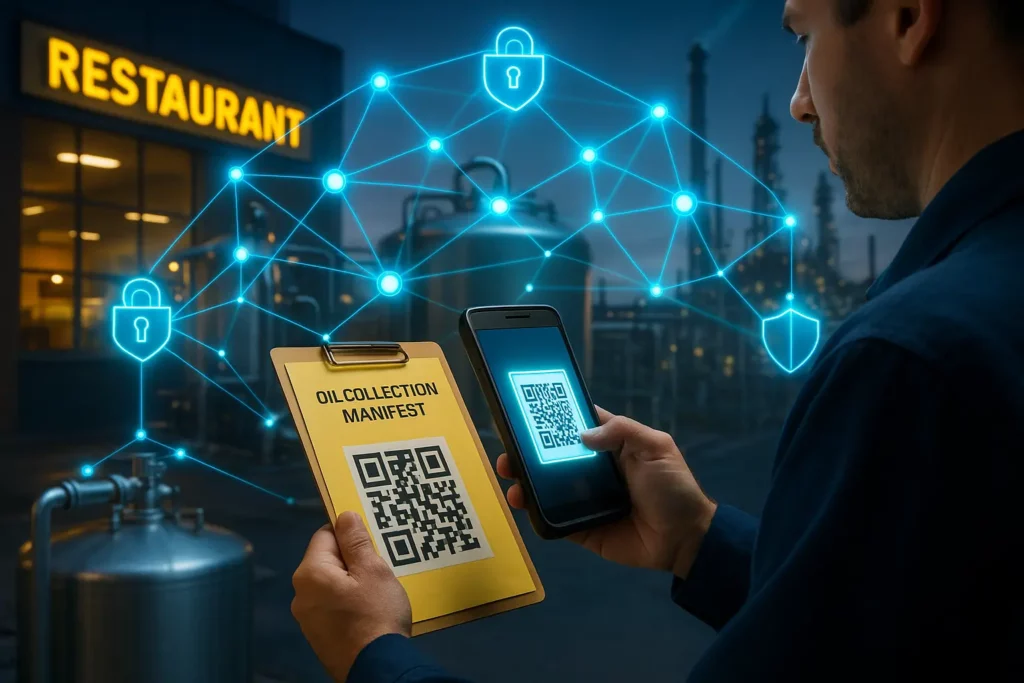
Jet Fuel Renaissance: From Fryer to Flight Deck
Sustainable aviation fuel (SAF) demand is skyrocketing as airlines race toward 2030 mandates. Recent deals, from Cosmo Oil’s municipal collection pact in Japan to Microsoft and IAG’s record UCO based SAF agreement, underscore a simple truth: fryer grease now fuels jets. Europe’s new subsidy scheme will cover up to 2.6 billion litres of bio derived jet fuel, much of it sourced from waste oils. For restaurants, higher buy back rates and long term offtake contracts are already showing up in hauler bids, rewriting the economics of grease recycling overnight.
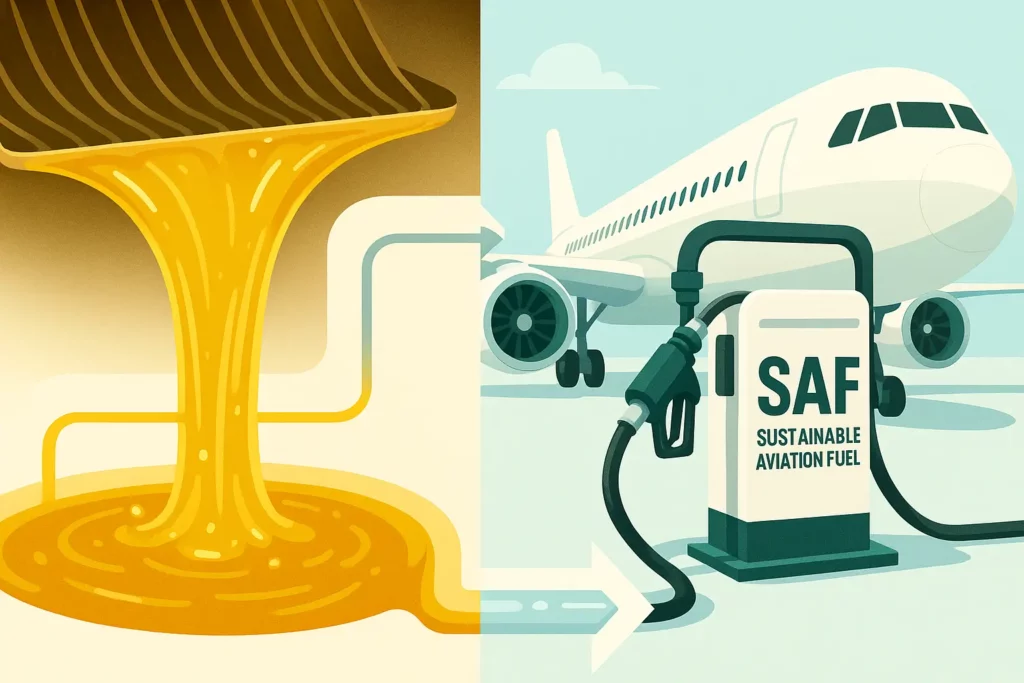
Enzymatic Upcycling: Bioplastics & High Value Polymers
Beyond fuel, biotech startups are feeding waste lipids to engineered microbes that spin out polyhydroxyalkanoate (PHA) bioplastics and epoxy precursors. A 2024 life cycle study found enzymatic routes cut greenhouse emissions 65 percent versus crude oil derived plastics while matching mechanical strength. Early adopters, think boutique packaging firms and surfboard shapers, pay premiums for these drop in resins, opening a boutique but rapidly scaling revenue stream for processors able to hit purity specs. In circular terms, yesterday’s fryer oil could very well become tomorrow’s compostable fork.
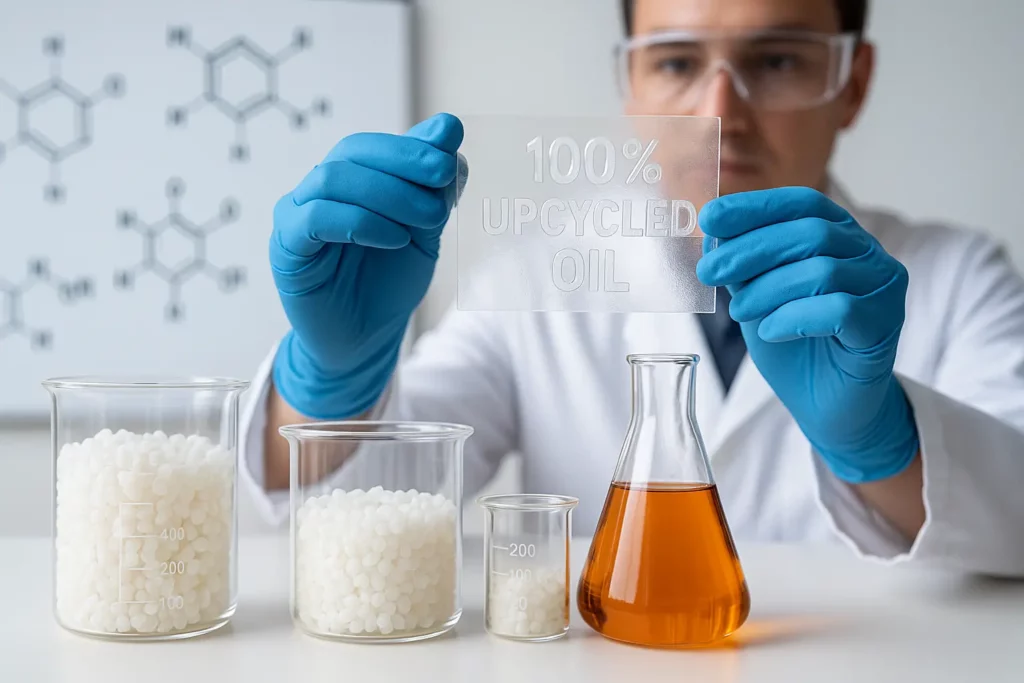
Carbon Negative Pyrolysis: Biochar & Green Chemicals
Fast pyrolysis units now convert low grade grease residues into a porous biochar that locks carbon underground for centuries, earning valuable carbon credits in voluntary markets. Recent pilot studies demonstrate improved catalyst performance and double digit ROI when plants co process food waste blends. The kicker: bio oil coproduct streams yield renewable solvents and asphalt additives, diversifying income beyond char sales. For cities choking on organics disposal fees, decentralised pyrolysis is emerging as the Swiss Army knife of waste valorisation, sequestering carbon while padding municipal coffers.
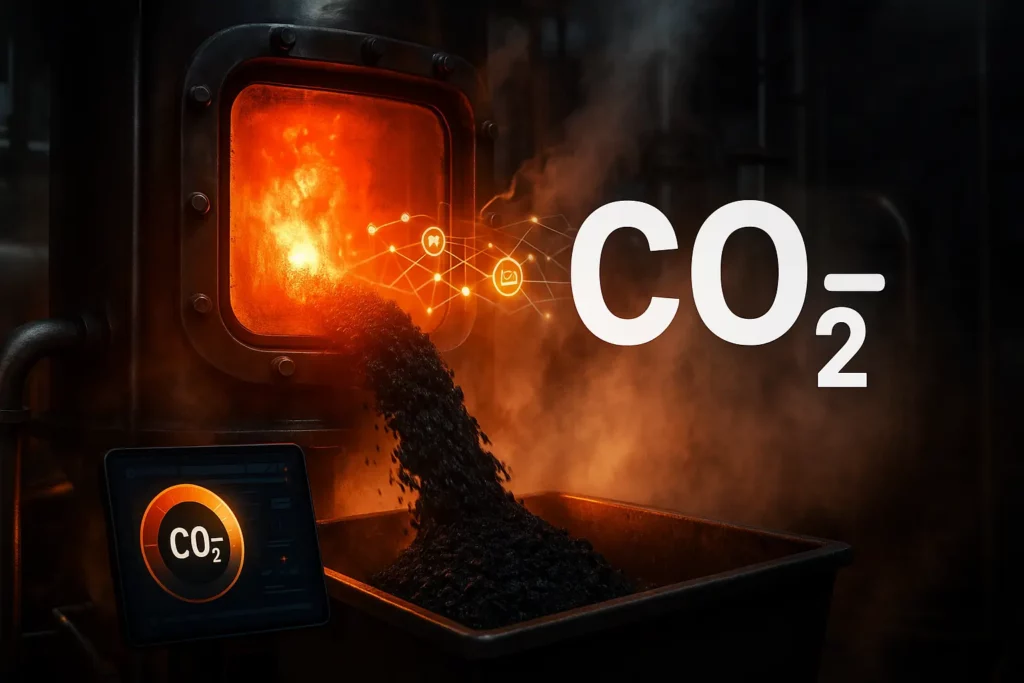
| Innovation | Primary Payoff |
|---|---|
| IoT Smart Collection | 30% fewer haul miles & theft losses |
| Blockchain Tracking | Premium rebates + anti fraud compliance |
| SAF Production | High volume, multi year offtake contracts |
| Bioplastic Upcycling | Premium PHA resin revenue |
| Biochar Pyrolysis | Carbon credits + diversified chemicals |
Closing Takeaway
Grease Connections’ service map already overlays many of these breakthroughs, from sensor equipped caddies in Miami kitchens to SAF supply partnerships in Georgia. The message is clear: getting ahead of the curve on traceability and tech isn’t just good stewardship; it’s good business. Tomorrow’s most profitable gallon is the one you once paid to throw away.

